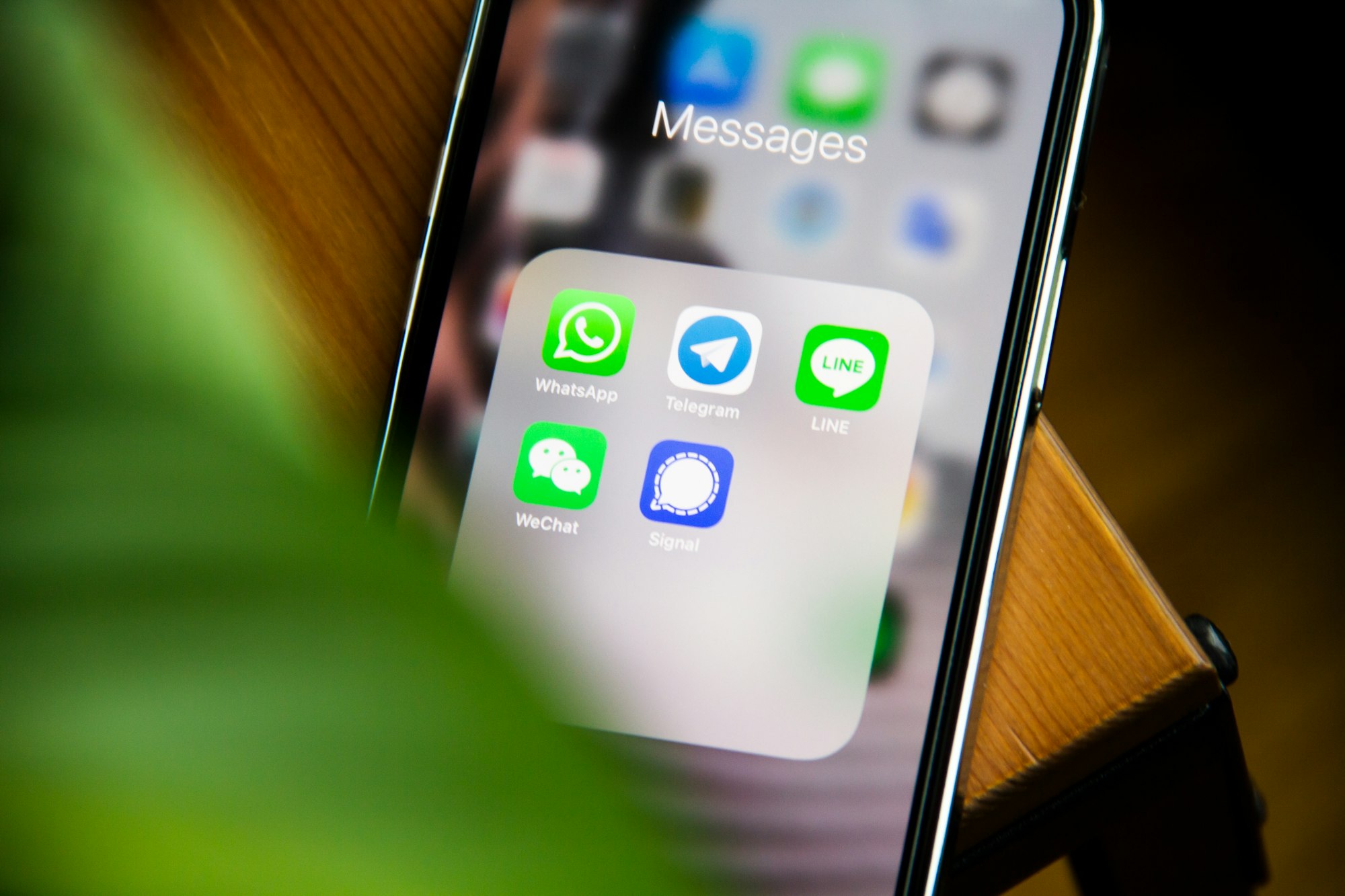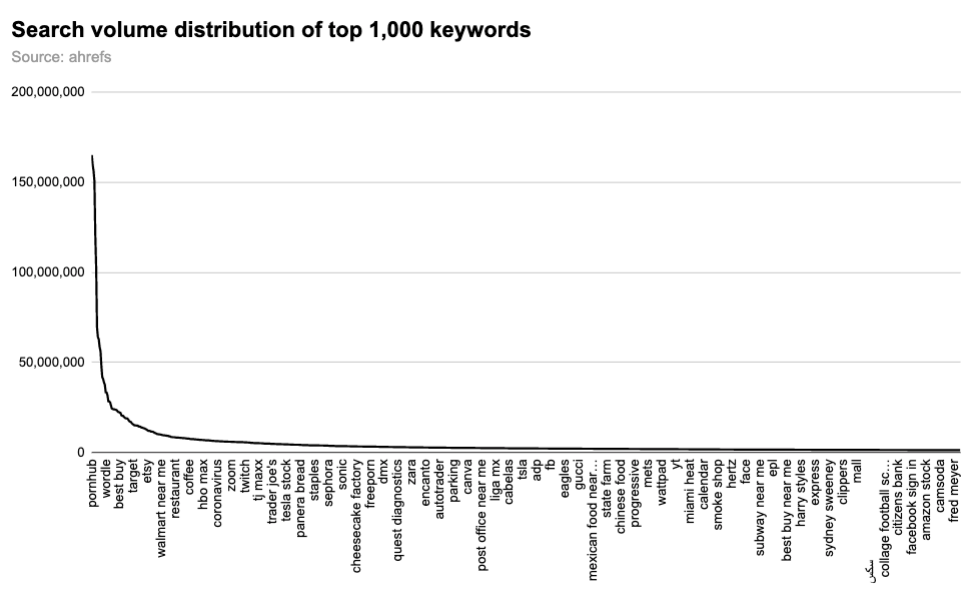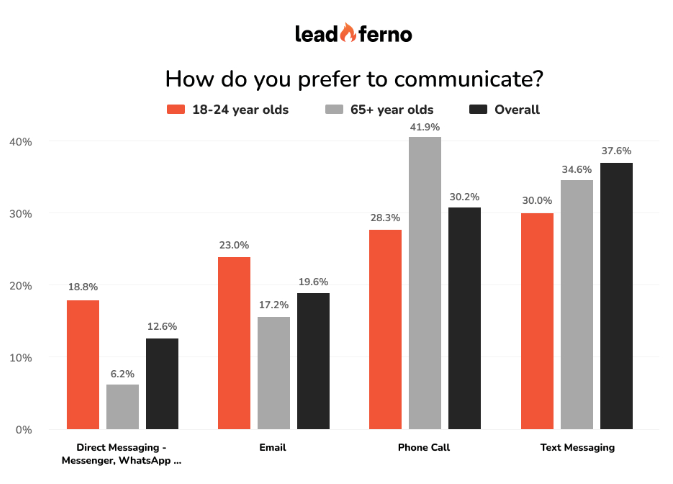Top 1K Keywords, Wonder v. Webvan, Text You Must

Brands, Local Dominate Top Searches
Food near me and restaurants near me are the leading local queries in the top 1,000 keywords according to a recent analysis (using Ahrefs data) by Shopify's Director of SEO Kevin Indig. Both are in the top 25. Overall, there were 126 "near me" searches out of 1K keywords, roughly 1 out of every 8. But this isn't the full list of local queries; there are lots of brand searches for retailers: Home Depot, Starbucks, Walgreens, McDonalds, Target, Wells Fargo, Best Buy, Whole Foods, Trader Joe's and so on. Categories such as gas, restaurants, hotels, liquor store and grocery store appear as well. But the list is dominated by brands, whether websites or physical locations. Facebook, YouTube, Amazon, Google, Yahoo are the top website queries (Pornhub is tied with Facebook for #1). Bing appears much lower at 159. DuckDuckGo is 192. Keyword 1,000 is in n out burger.

Our take:
- The most striking things about the list are: 1) dominance of branded queries, 2) prevalence of local-intent searches, 3) not that many porn-related keywords.
- There are comparatively few category searches (most "near me" searches are). So most category + location searches are long tail.
- Retailer-brand searches could be for e-commerce. In reality, 80%+ are going to conclude with an in-store visit, pickup or purchase.
Wonder: A Better DoorDash or Webvan?
Is food-delivery startup Wonder a better version of DoorDash or is it more like Webvan? The NY-based startup just raised another $350 million at a valuation of $3.5 billion. Its funding to date is $900 million. Wonder is creating a national network of food trucks that prepare meals and deliver them too, making the food hotter and fresher upon arrival. The model potentially avoids some of the ethical problems of traditional food delivery, though Wonder in some cases also delivers from local restaurants. Presumably costs will be somewhat lower because Wonder won't have to charge as many fees (tbd). The company is ramping operations at a time when macroeconomic conditions are putting intensifying pressure on delivery startups. According to many analysts, food delivery is simply an unprofitable business, though the pandemic drove significant adoption and consumers continue to rely on these services.

Our take:
- Webvan was a grocery delivery pioneer (1996-2001). Ahead of its time, it expanded too quickly and was run by people without grocery experience.
- A major difference between Wonder and Webvan: the latter never validated its model. But online food ordering is now well established.
- It's all about execution: Can Wonder's cook + deliver model overcome the costs and flaws in existing food delivery? I'm guessing no, ultimately.
Survey: Texting Wins Again
The conventional wisdom says nobody wants to talk on the phone anymore. That's not entirely true but companies need a multi-channel approach to communications with text/messaging at the center. A new survey (n=2,000) from Leadferno finds texting beats other communication channels, including direct messaging using third party clients. There were age and gender differences in the survey results: women favor texting and phone more than men; men like email and messaging clients more than women. Only those over 65 prefer the phone to other channels, according to the survey. However there are some meaningful, contrary findings that point to a more complex picture. For example, a 2022 survey of teens (n=7,100) found the phone was actually preferred for customer service to digital channels by large margins. This is not to undermine the Leadferno findings, but simply to say there's more nuance here than meets the eye. Context matters, how you ask questions also matters.

Our take:
- Google is reportedly automatically enabling messaging on GBP in Maps and Search – not at the request of the business, however.
- Two important survey conclusions: businesses should enable messaging (for multiple reasons), but have a multi-channel strategy.
- Businesses that are easy to reach, quick and responsive to inquiries will win in the end. And texting/messaging is critical to that proposition.
Short Takes
- Google testing new shopping filters, including "nearby."
- Bing – remember Bing – tests out new Local Pack design.
- Internet Explorer (tool of former monopolist MSFT) now officially dead.
- Firefox for desktop will block all third party cookies by default.
- Yelp, Sonos, DuckDuckGo, Spotify urge passage of antitrust bills.
- Antitrust bill sponsors confident they have the votes to pass.
- Meta unveils new site to support LGBTQ+ small businesses.
- DoorDash beefing up written reviews in US, Australia, Canada.
- 1.5 billion people: YouTube Shorts nearing TikTok (WSJ).
- Google Web Stories sees blatant plagiarism problem.
- Biometrics: How Apple Passkeys will eliminate passwords (WSJ).
- Big tech preparing to comply with new EU rules on disinformation.
- Germany investigating Apple ATT, considers it anti-competitive.
- Amazon tells sellers to lobby against antitrust bill, sellers trash Amazon.
- India's use of facial recognition/surveillance enters dystopia zone.
- Google Maps to show toll-road prices, enable alternative routing.
- As much as 20% of PPP grants during COVID were based on fraud.
Listen to our latest podcast.

How can we make this better? Email us with suggestions and recommendations.

